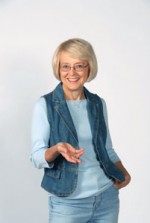

We have two choices as the US economy continues to convulse. We can point fingers and blame the people most obviously at fault. Or we can get serious about fixing it and admit our own part in this mess. The first option is a victim role—easy and appealing because we’ve given victims an honored place for decades. But it’s not the way out of this mess. To really fix it, we need to understand what made it happen–rather than pointing to a specific “who”–and implement a system of checks and balances so it doesn’t happen again.
This financial debacle is supported by a huge, stinking pile of greed. Greed per Merriam-Webster’s Collegiate Dictionary is “a selfish and excessive desire for more of something (as money) than is needed.” Yep. We are drowning in a sea of that. It’s not just the sub-prime wizards who are guilty though.
It’s easy to see greed in preposterous CEO salaries. It’s easy to see it in those who “made a killing” selling houses to people who couldn’t afford them. It’s not so easy to see our own greed. But that’s what we have to look at to get this fixed.
Buying things we can’t afford when they’re not essential is greed. Why? Because we’re using that kind of shallow stuff to feel good about ourselves. We think that if we have that, we’ll be “successful.” Martha Beck refers to it as “the shallows” and contends that “the real reason we feel so starved in the shallows is that we aren’t made to be satisfied with material possessions or with concepts of ourselves as famous, noble, smart, handsome, righteous, influential, blah blah blah.”
We are way off track on creating truly satisfying lives for ourselves. Instead of doing what we believe is important, we do whatever makes us money so we can buy stuff. Instead of doing work in which we believe, we sell out so we can keep buying. But filling the hole where meaning belongs with “stuff” is never enough. Or as Matthew Kelly puts it in The Rhythm of Life, “You never can get enough of what you really don’t need.”
What we really do need is a chance to connect fully with other people, a chance to prove our competence in what we do, and a chance to claim our authentic purpose in what we commit our time, effort, and money to. We don’t need the 54” plasma TV. We need to get out there and help someone learn to read. We don’t need a $1000 outfit. We need to find the joy of a real hug.
Greed is a dead end. When we get on that road, we get lost easily. We take the road because it’s got the neon of Madison Avenue pointing the way. It looks “exciting.” But a dead end is a dead end, razzle-dazzle or not. Before we get this mess fixed as a nation, we need to individually chart a better course. We need the high road—of meaning, of integrity, of purpose.
If you are sitting there congratulating yourself because you are debt-free with money in the bank, don’t get too comfy. Martin Luther King warned “Our lives begin the end the day we become silent about things that matter.”
We must say “You’re going the wrong way” to loved ones who are buying things they can’t afford. We need to stop enabling that wrong behavior by giving them money to make ends meet when they can’t. We need to YELL about the self-serving foolishness of offering credit cards to people who are already deeply in debt. There oughtta be a law!
Let’s not assume that this will “correct itself” as lending institutions bear the consequences of their own version of greed—the defaults of the heavily burdened interest-paying creditors they’ve cultivated as the credit situation tightens. We need to do our part, too. Say “No” to greed.
“Stuff” is not the answer. As a nation we need to get back on the high road of integrity and purpose. The view is nicer, it costs less, there’s more true satisfaction, and you sleep better.
===================================================
Mary Lloyd is a speaker and consultant and author of Supercharged Retirement: Ditch the Rocking Chair, Trash the Remote, and Do What You Love. For more, see her website www.mining-silver.com.

Leave a Reply